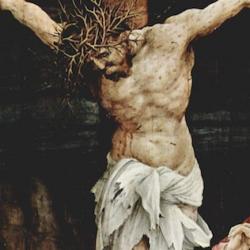Early in his Forgiveness in Victorian Literature, Richard Gibson quotes Sarah Beckwith’s observation that “promising and forgiving [are] acts of making community” (27).
Gibson draws on Hannah Arendt’s analysis to fill out the picture. Promises reduce the unpredictability of the future, while “forgiveness confronts the crisis of the past. In this case, the issue is the apparent ‘irreversibility’ of our actions – of being ourselves unable to undo what we have done. . . . Misdeeds thus have unwished for consequences; forgiveness has the power to free us from them.” Whereas vengeance, in Arendt’s words, “encloses [us in] relentless automatism . . . which by itself need never come to an end,” forgiveness is an “assertion of freedom and creativity.” Forgiveness therefore is “for Arendt . . . an essential condition for the maintenance of the public realm where free action occurs” (28).
Drawing on these two writers, among others, Gibson explores the varied ways forgiveness is treated in the work of Dickens, Trollope, George Eliot, Thomas Hardy, and Oscar Wilde. He argues that “forgiveness . . . is valuable to Victorian authors for its power to create or restore the possibility of harmonious . . . life together.” Though the scope of the reconciled community is often small – a small town – there are times when it stretches to leave the hope that “the nation or society (even world) starts to behave like the community, the tissue of interconnected lives that, in fact, it is” (33-4).
Gibson’s summary of George Eliot’s work illustrates the complexities of the theme in Victorian literature. For the un-converted Eliot, “the past can’t be erased. The working out of her plots operates according to a kind of moral ‘cause and effect’ in which the consequences of transgressions, especially, prove inescapable.” Though Christian writers didn’t think sins could be easily overlooked or forgotten, they did believe that their effects could be “mitigated through repentance or forgiveness.” Eliot spies in the call for repentance and forgiveness a kind of oppression, an imposition of traditional morality that induces guilt. Better to challenge traditional morality than to go through a continuous cycle of violation and forgiveness. As a result, “Eliot’s fictional universe . . . cannot entertain the sort of excessive, extravagant, utterly unreasonable reversals” that appear in other Victorian writers.
Yet Eliot can’t quite shake herself free: She “does not forswear forgiveness altogether. . . her her attempt to come to terms with the practices of forgiveness and confession in her fiction comprises part of the ongoing dialogue with Christianity.” She makes a “measured case” for forgiveness, but it “remains significant in her fictions through its contributions to psychological and communal healing” (103).











